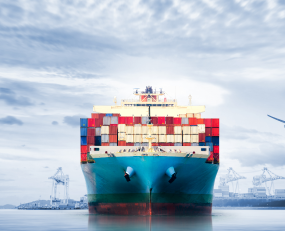Trump’s ship tariffs may be changing. Amongst the storm of new tariffs and trade policies bursting forth from the US over the past few weeks, there has been some qualification over the suggested levies on ships entering US ports.
Various media reports suggest that the level of charges on ships will vary by the size of ship. Off-the-record briefings to journalists at Reuters and the Wall Street Journal have suggested that lobbying from ports has resulted in a restructuring of the proposed charges.
According to the Wall Street Journal’s sources the new plan is to “base the fees largely on vessel capacity, resulting in lower fees for smaller ships coming into ports like Los Angeles, New York, Savannah, Ga., and Oakland”, with the U.S. Trade Representative (USTR) also looking to “to ease the charges on ships carrying agricultural exports like soybeans and timber”.

The Reuters’ report cited anonymous sources who asserted that the USTR had experienced a “a flood of negative feedback from industries that said the idea could be economically devastating, according to six sources”. This had resulted in the administration rethinking the policy and considering a “charge based on the tonnage of unloaded vessels rather than a flat fee”. The original idea was for the US to levy a charge on all ships built in China or operated by Chinese shipping companies every time they made a call at an American port. The US Trade Representative has commented publicly that hostile opinions had led to “revisions” to the plans, with the Trade Representative Jamieson Greer stating that “the President will look very carefully to make sure we have the right amount of time and the right incentives without impacting our commodity exports”.
The issue of Trump’s tariffs is a volatile one. It is uncertain if much of his policy is in fact a negotiating ploy to make certain nations change their trade policies. However, it is hard not to think that China is a particular target for his measures. If so, owners of Chinese built ships will remain under pressure, as will Chinese shipping lines.
Source: Ti Insight






